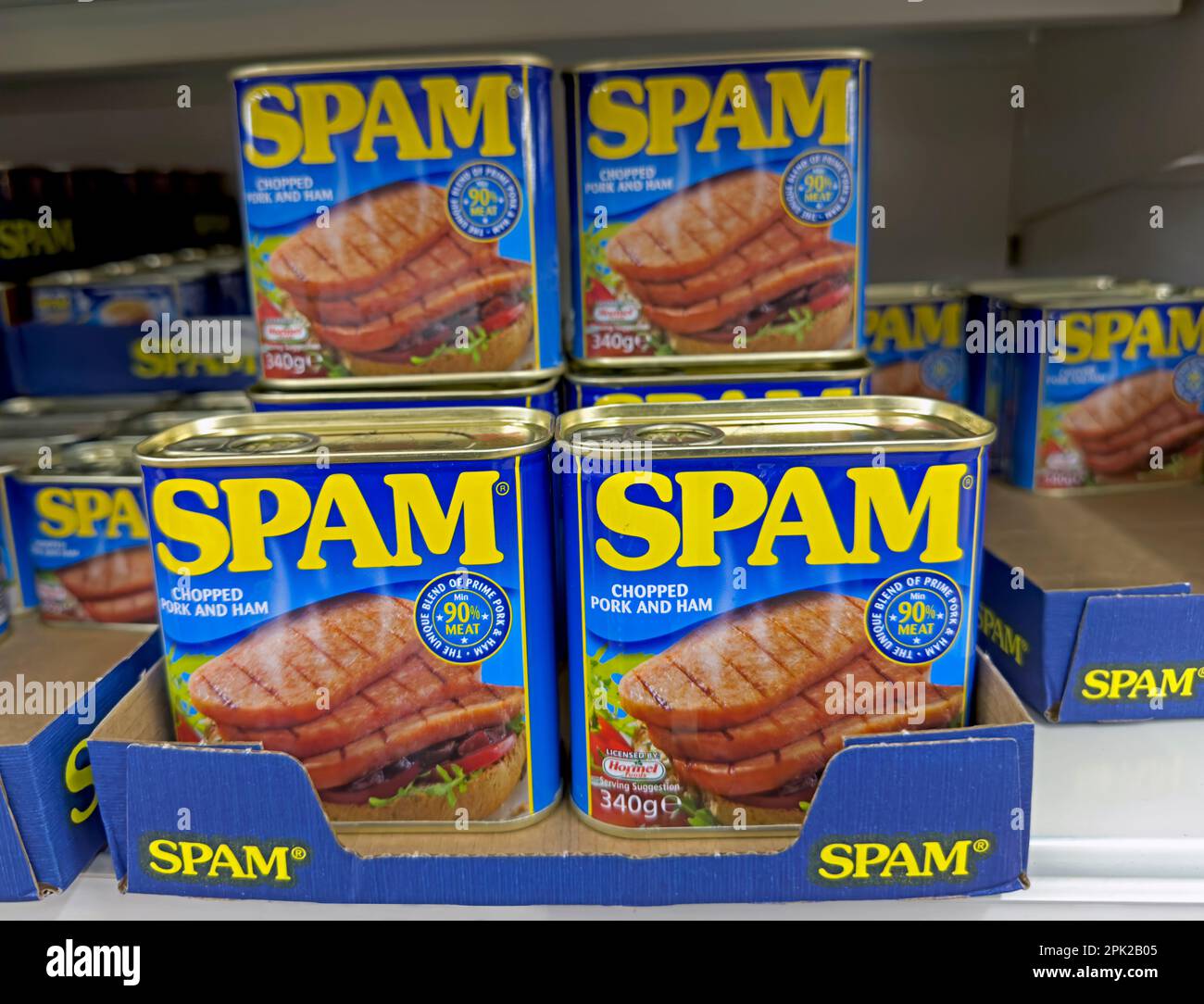Tins of Spam, chopped pork and ham, licensed by Hormel Foods

Image details
Contributor:
Tony Smith / Alamy Stock PhotoImage ID:
2PK2B05File size:
118 MB (2.6 MB Compressed download)Releases:
Model - no | Property - noDo I need a release?Dimensions:
7344 x 5616 px | 62.2 x 47.5 cm | 24.5 x 18.7 inches | 300dpiDate taken:
4 April 2023Location:
United KingdomMore information:
Spam is a brand of salty processed canned pork made by Hormel Foods Corporation. It was introduced by Hormel in 1937 and gained popularity worldwide after its use during World War II. By 2003, Spam was sold in 41 countries (and trademarked in over 100) on six continents. In the U.S., Hawaii is the state with the highest per capita consumption of Spam, which has become an ingredient in Hawaiian cuisine (like sushi). The generic form of Spam may be sold in cans as "pork luncheon meat". Since its invention, it is now available in different flavours and using different meats. Like most hotdogs, Spam is precooked, making it safe and edible to eat straight from the can, but it is often cooked further to improve some characteristics of its palatability. Spam's basic ingredients are primarily pork shoulder and ham, with salt, water, modified potato starch (as a binder), sugar, and sodium nitrite (as a preservative). Natural gelatin is formed during cooking in its tins on the production line. Concerns about Spam's nutritional attributes have been raised, in large part due to its high content of fat, sodium, and preservatives. Spam has affected popular culture, including a Monty Python skit, which repeated the name many times, leading to its name being borrowed to describe unsolicited electronic messages, especially email. It is occasionally celebrated in festivals such as Austin's Spamarama.